.
So far in this series, which focuses on leadership across the full gamut of speculative fiction novels, the featured leaders have all been from Team "the good guys", if not outright heroes. (If you want to check them out, there's a list at the end. :-) )
 |
Today, though, I'm looking at Ulric, the chief "bad guy" from David Gemmell's Legend (Drenai #1.) Ulric is not a "monolithic evil" villain like Sauron in The Lord of the Rings (discussed here), but he is Legend's primary antagonist and prepared to use black magic to achieve his ends. He's also a great leader.
I'll get to why in a moment, but the basic premise of Legend is that Ulric has achieved what's never been done before, and unified the warlike Nadir tribes. Now, he wants to conquer the world -- but the Drenai fortress of Dros Delnoch, which holds the Delnoch Pass, stands in his way.
Ulric, unsurprisingly, intends taking it by any means necessary. Rek, the Earl of Bronze, and a patchwork army of defenders (including Druss, the legendary axeman), aim to prevent him. And the rest, as they say, is history -- or at least, the rest of the Legend story. :D
 |
| The original cover |
So what makes Ulric, the Legend-ary antagonist, so great a leader? First and foremost, he has unified the Nadir, which as mentioned above, has never been done before. He's also charismatic and a military genius, which is part of what convinces so many Nadir to follow him. They're a warlike society and bask, so to speak, in the reflected glory of his successes.
As a leader, Ulric models outstanding performance, inspiring others to emulate him, but he also demands it of his followers. The same with loyalty -- but he doesn't just demand. He rewards both performance and loyalty generously, a leadership practice that revolutionizes the Nadir way. Conversely, failure and disloyalty are brutally punished, consistent with Nadir tradition.
So as a leader, Ulric not only offers both carrot and stick, but simultaneously revolutionizes and maintains the Nadir norms -- in a way that cements his followers' loyalty and serves his imperial ambitions. In order to create an empire, though, Ulric understands (yep, he's a very smart guy) that he must not only conquer, but rule. And that successful rulership and enduring empires both require stability.
Consequently, what was begun with the Nadir, Ulric extends to those he seeks to conquer. Surrender, and your lives, homes, and livelihoods will all be spared; fight, and your society will be exterminated and/or enslaved. Here's the important thing, though: either way, Ulric is scrupulous in keeping his word -- which is another reason he's a great leader. He understands that continued success, and a stable empire, depend on his followers and subjects being able to rely on his promises, while enemies really believe his threats.
 |
| Echoes of Mongol warriors, as seen in "Marco Polo" |
(By the way, if you're thinking all of this sounds a lot like Genghis Khan, I am "pretty sure" he was the inspiration for Ulric.)
Or put another way, Ulric has internalized the observation of Joseph Stiglitz, the Nobel-prize winning economist, that, “It’s trust...that makes the world go around.” And no, Stiglitz and his quote aren't mentioned in the book (grins :D) but understanding, and manifestation, of the observation is implicit to Ulric's leadership.
Charismatic; military genius; smart; generous; both demands and rewards performance and loyalty, while brutally punishing their opposite; a man of his word, whether promise or threat; ambitious and and clearly ruthless -- all these qualities contribute to why Ulric, although the "bad guy" in Legend, is one of genre fiction's great leaders.
He does have one other, notable quality, though. In the midst of a bloody and bitter conflict, Ulric is prepared to honor greatness, even in his enemies. So when one of the great heroes of the Dros Delnoch defense dies, Ulric allows a funeral truce and pays respect to his fallen enemy. Doing so is a considerable risk, but honoring and respecting the hero's greatness cements his own -- and elevates, rather than diminishes, his leadership.
So, the "bad guy" notwithstanding, when it comes to leadership in genre fiction, I tip my hat to Ulric of the Nadir.

About Helen Lowe

Helen Lowe is an award-winning novelist, poet, and lover of story. With four books published to date, she is currently completing the final instalment in The Wall Of Night series.
.
Helen posts regularly on her “…on Anything, Really” blog, monthly on the Supernatural Underground, and tweets @helenl0we.
Previous Posts: Great Leaders in Speculative Fiction -- Where To Find 'Em & Why they Rock
February: Mara of the Acoma in the Empire series by Raymond E Feist & Janny Wurts
March: Kaladin and Dalinar in The Stormlight Archive by Brandon Sanderson
April: Pyanfar Chanur in "The Pride of Chanur" series by CH Cherryh
May: John Aversin in Dragonsbane, by Barbara Hambly
June: Katniss Everdeen in The Hunger Games Trilogy, by Suzanne Collins


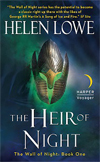
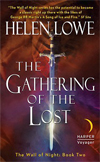
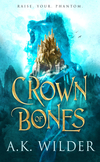
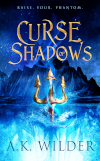



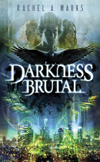
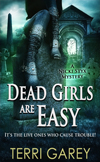

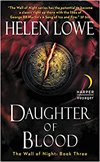
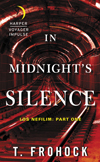
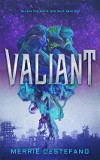
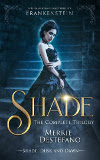

No comments:
Post a Comment